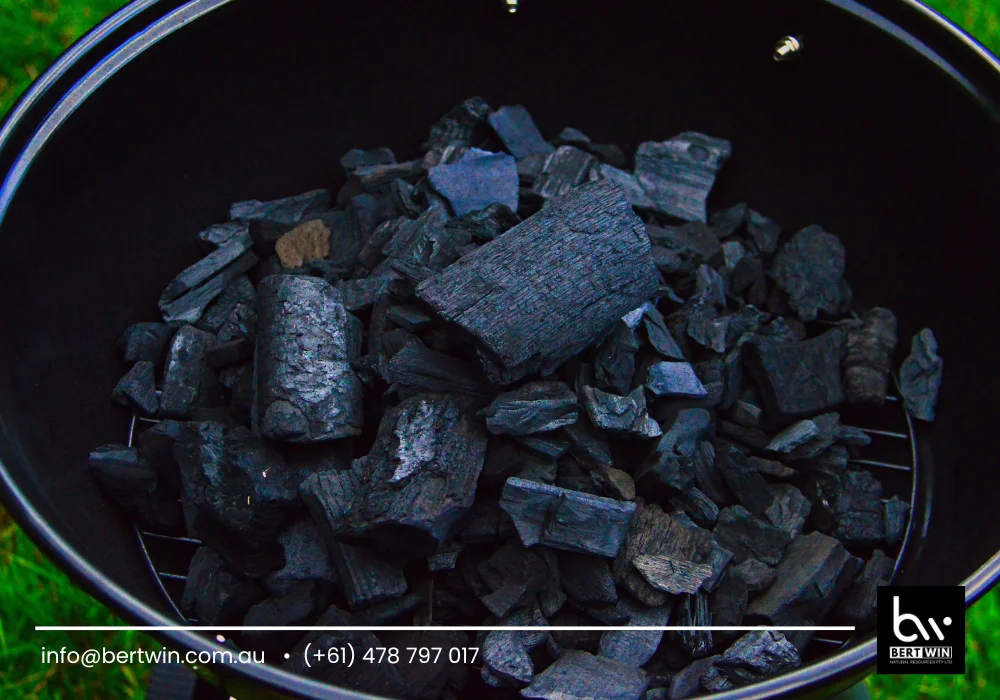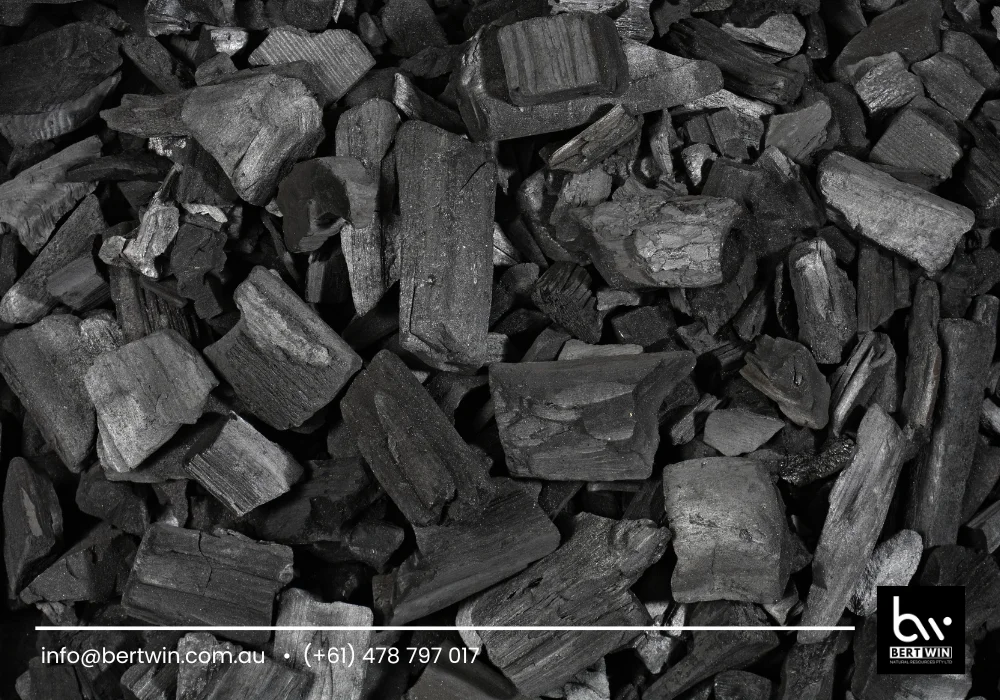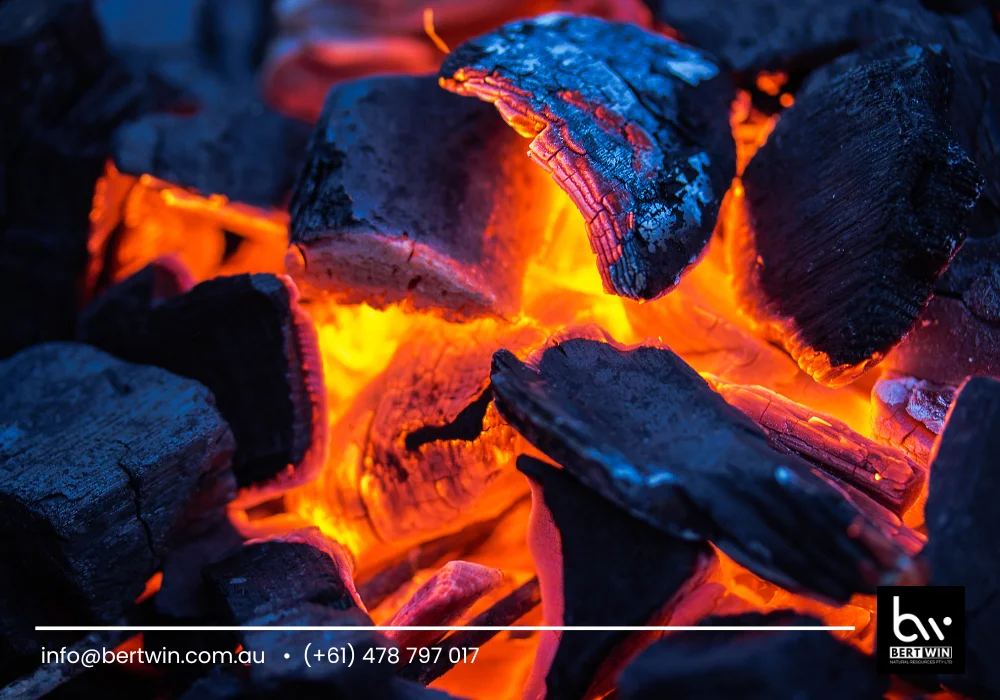Coconut charcoal briquettes are quickly becoming a preferred alternative to traditional charcoal for cooking and heating due to their superior burning properties, sustainability, and efficiency. Made from coconut shells, these briquettes are an eco-friendly and reliable fuel source, addressing several environmental and practical problems faced by users of traditional charcoal. In this article, we will explore the benefits and uses of coconut charcoal briquettes, and how they solve common issues in grilling, barbecuing, and other forms of cooking.

What Are Coconut Charcoal Briquettes?
Coconut charcoal briquettes are made by compressing coconut shells, a byproduct of the coconut industry, into uniform shapes that are easy to use for grilling and heating. The process of creating these briquettes involves carbonizing the coconut shells through pyrolysis, which burns the material at high temperatures in a low-oxygen environment to remove volatile gases and produce carbon.
These briquettes are highly regarded for their ability to burn cleanly and efficiently, producing minimal smoke and ash. Unlike traditional charcoal, which is made from wood, coconut charcoal briquettes provide a more sustainable alternative as they use a renewable resource and contribute to reducing deforestation.
Problems Solved by Coconut Charcoal Briquettes
- Excessive Smoke and Air Pollution from Traditional Charcoal
One of the most significant issues with traditional charcoal is the amount of smoke it produces during combustion. This smoke contains harmful chemicals, including carbon monoxide, which can affect air quality and health. Coconut charcoal briquettes offer a solution to this problem by burning cleaner and producing significantly less smoke than wood-based charcoal. The low smoke production of coconut charcoal makes it ideal for use in areas with limited ventilation, such as indoors or in enclosed barbecue spaces. It also ensures that food cooked over coconut charcoal retains its natural flavors without the overpowering smoky taste. - Short Burn Time and Frequent Refueling
Traditional charcoal often burns quickly, requiring frequent refueling to maintain a steady cooking temperature. This can be both inconvenient and wasteful, especially during long cooking sessions. Coconut charcoal briquettes burn longer and more consistently, providing a steady, high-heat source for extended periods. The extended burn time of coconut charcoal briquettes reduces the need for frequent replacement, saving time and effort. This feature is particularly useful in professional kitchens, restaurants, or for large-scale barbecues where maintaining an even temperature is critical for cooking success. - Environmental Concerns with Traditional Charcoal Production
Charcoal made from wood contributes to deforestation, which leads to the destruction of ecosystems, loss of biodiversity, and the release of stored carbon into the atmosphere. In contrast, coconut charcoal briquettes are made from coconut shells, a byproduct of the coconut industry that would otherwise go to waste. The use of coconut shells as a raw material for briquettes helps reduce waste and promotes sustainability. Additionally, coconut shells are a renewable resource, making coconut charcoal briquettes a more environmentally friendly option compared to charcoal produced from non-renewable timber sources.

Benefits of Coconut Charcoal Briquettes
- Eco-Friendly and Sustainable
One of the most compelling benefits of coconut charcoal briquettes is their environmental sustainability. The production of coconut charcoal utilizes coconut shells that are otherwise discarded, contributing to waste reduction. As these shells are a byproduct of coconut farming, using them as a fuel source helps reduce the pressure on forests and encourages a more sustainable agricultural practice. Moreover, coconut charcoal briquettes are biodegradable and produce less carbon when burned compared to traditional charcoal. This helps mitigate the impact on the environment and reduces the carbon footprint of cooking and heating activities. - High Heat Output and Longer Burn Time
Coconut charcoal briquettes are known for their superior heat output. They burn hotter and more consistently than traditional charcoal, ensuring that food is cooked more evenly and quickly. This is particularly beneficial for grilling, barbecuing, and roasting, where high and consistent heat is essential. The longer burn time also reduces the need for frequent replenishing, which makes coconut charcoal briquettes ideal for long cooking sessions or when grilling larger quantities of food. This feature is especially useful in outdoor cooking and catering scenarios, where a stable heat source is necessary. - Cleaner Cooking with Less Ash
Another advantage of coconut charcoal briquettes is their cleaner burn, which results in less ash compared to wood-based charcoal. Less ash means easier cleanup after cooking and less mess to manage. The reduced ash production also ensures that food doesn’t come into contact with burnt residue, improving the quality of the cooked dish. The minimal ash left behind is also easy to dispose of and can be used as a natural fertilizer for plants, adding another environmentally friendly aspect to using coconut charcoal briquettes. - Odorless and Non-Toxic
Unlike some types of traditional charcoal, coconut charcoal briquettes do not emit any unpleasant odors during burning. This makes them ideal for indoor or outdoor cooking, as they ensure that food maintains its natural flavor without being tainted by chemical or burning smells. Additionally, coconut charcoal briquettes are non-toxic, meaning they are safe to use in various cooking environments.
How to Use Coconut Charcoal Briquettes

- Grilling and Barbecuing
To use coconut charcoal briquettes for grilling or barbecuing, start by arranging the briquettes in a charcoal grill. Light the charcoal using a chimney starter or lighter cubes and allow the briquettes to heat until they turn glowing red. Once they are ready, spread the briquettes evenly across the grill for direct heat cooking, or create heat zones by piling the briquettes to one side for indirect heat cooking. The high heat and long burn time of coconut charcoal briquettes make them ideal for grilling a wide variety of foods, from meats to vegetables. - Cooking in Stoves and Ovens
Coconut charcoal briquettes can also be used in indoor stoves or traditional wood-fired ovens. Their consistent heat output ensures that these appliances can function effectively for cooking without the need for frequent refueling. Ensure the stove or oven is designed for charcoal use and has proper ventilation to avoid the buildup of harmful gases. - Camping and Outdoor Cooking
For outdoor cooking and camping, coconut charcoal briquettes are an excellent choice due to their portability and long burn time. They can easily be packed for use in portable grills, campfires, or outdoor stoves, providing a reliable and clean fuel source.
Conclusion
Coconut charcoal briquettes offer a range of benefits over traditional charcoal, from their cleaner burn and longer burn time to their sustainability and eco-friendly nature. They solve many of the problems associated with conventional charcoal, such as excessive smoke, short burn times, and environmental harm. Whether you’re grilling, barbecuing, or using them in stoves and ovens, coconut charcoal briquettes provide a cleaner, more efficient, and sustainable alternative for cooking.
For further information, you may contact WhatsApp at (+61) 478797017 or via email at info@bertwin.com.au.
